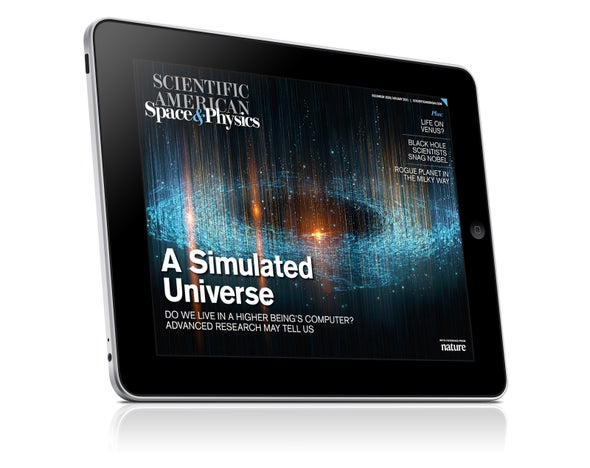What if this life is just a computer simulation running on some intellectually superior alien’s console? Something about this idea is tantalizing to people (evidenced by the success of The Matrix films) and has special appeal for our readers. It’s hooked physicists, philosophers, computer scientists and engineers, too, as author Anil Ananthaswamy writes in this edition’s cover feature [“Do We Live in a Simulation? Chances Are about 50–50”]. What is it, exactly, that is so enticing about this possibility? The fear that we are mere puppets of a more advanced species? Or perhaps it’s the calm that comes from the idea that none of this is real anyway. Examining the nature of our own reality, indeed whether we have a reality, is the most “meta” branch of physics.
In more satisfying endeavors, journalist Daniel Garisto reviews the long history of the search for black holes, whose champions were awarded this year’s Nobel Prize in Physics [“Nobel Prize Work Took Black Holes from Fantasy to Fact”]. One recipient, physicist Andrea Ghez, pushed her fellow astronomers and technicians tirelessly, despite doubt from the field, as her colleague Hilton Lewis describes in this issue’s opinion section [“How Andrea Ghez Won the Nobel for an Experiment Nobody Thought Would Work”]. Sometimes we have to fight for the realities we believe in.


